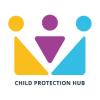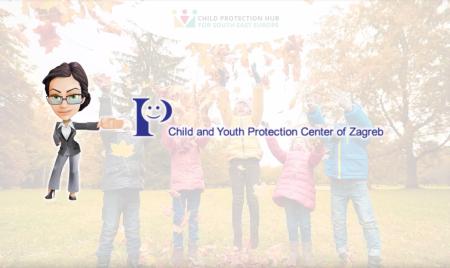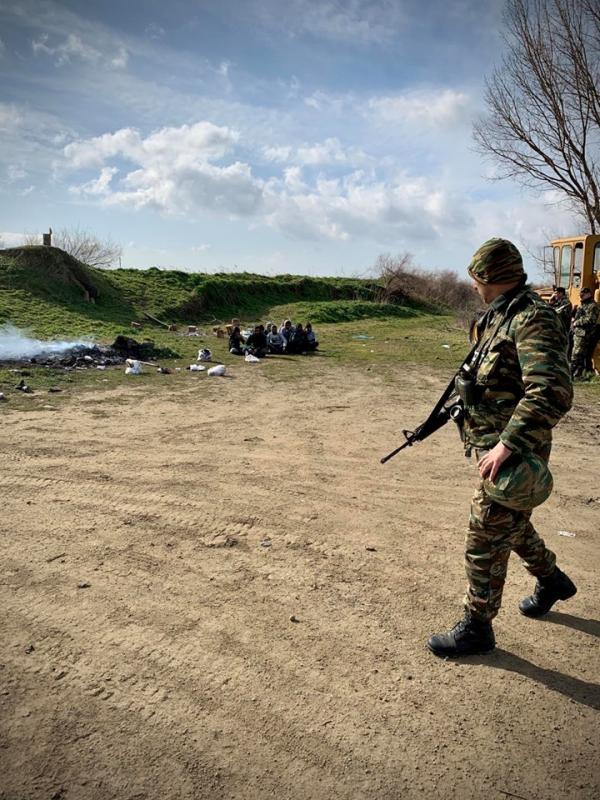
Prof. Gordana Buljan Flander, Ph.D., Director of the Zagreb Child and Youth Protection Center, has been working with abused and neglected children for over thirty years. In this column, she tells us how children who experience sexual abuse feel and what helps them recover...
"I will not and could not speak about specific cases of sexual abuse, but I have a need, given that I have worked with hundreds of sexually abused children and young people, to show the public how children and young victims of sexual abuse feel and what kind support they need from us adults: they need understanding and support of the family, but also of all institutions in the system involved in child protection - kindergartens, schools, social care centers, health institutions, police, court - because the recovery of victims depends on how families and we as a society respond to individual crime when it occurs. And the civility of a society is shown precisely by the way we treat victims and perpetrators.
Why are victims of sexual abuse silent about what happened to them?
The victims of sexual abuse about what is happening to them are silent for a long time - from the time the abuse happened to the time of disclosure, on average, 10 to 16 years pass. They are often asked the question as if they were being asked why they had not been told before, which further imposes a sense of guilt and responsibility for what was happening to them.
And the victims are silent for the following reasons:
- fear that they will not be trusted,
- fear that it will cause problems in the family,
- feeling guilty,
- feeling shame,
- feeling marked, stigmatized,
- fear that someone will tell them that they are guilty and responsible,
- fear of losing control of the process if they bring legal proceedings…
Unfortunately, many times, sexually abused children and young people have told me that their fears came true, that after they spoke, the surroundings marked them, in the institutions of the system they felt that they had to prove that they were not guilty of what was happening to them (even if the victims were young children and the abusers were adults), and some children experienced that the adults had told them "if you have been silent until now, why don't you keep quiet, you're just doing trouble to us." And that is why victims should never be called why they have not been told before or exposed them to all these pressures and feelings.
What are the consequences of child and youth sexual abuse?
Some of the consequences of sexual abuse in children and young people are often:
- a feeling of less value,
- lower self-esteem,
- depression,
- anxiety,
- suicidality is significantly more common with this type than with other types of trauma,
- difficulties in creating and maintaining relationships with peers,
- difficulty in creating close and intimate relationships and romantic relationships.
- the feeling that "damaged goods"
and that they do not deserve anything good to happen to them in life ...
These consequences will not only go through as they grow up, but are carried by children and young people into their adult lives, and often they can never resolved that. I was recently called by an 80-year-old lady from Germany who told me she needed to tell someone what was happening to her before she died. And she was sexually abused by a close person when she was a child, from whom she never recovered. After high school, she went to work in Germany, never made a family, never had a romantic relationship or had an intimate relationship. All her life, she had been returned to the harassing images of abuse, she still felt dirty and marked at that late age, was treated for depression and had attempted suicide several times. But because of feelings of shame and guilt, she never told anyone she was a sexually abused child.
"He walks around and nobody asks him anything like it's my fault"
When a child and young adult victim of sexual abuse speaks and reports sexual violence, he/she is often exposed to multiple interrogations in different places by different, often inexperienced and insensitive examiners/experts, which is extremely traumatic for him/her. They see the numerous expert witnesses that children and young victims of sexual abuse are exposed to as a sign that they are not trusted, that they have to prove that they have not invented it; Therefore, if the court proceedings take too long for some of them to end the unbearable situation for them, they withdraw their testimony even though sexual abuse was certainly taking place.
One girl told me "I have been going through various expert witnesses for four years, and he has been walking around and nobody asks him anything, as if it was my fault."
Impunity for perpetrators is the message to children and young people who are victims of sexual abuse that what happened to them is neither important nor serious enough
If the perpetrators are not punished or be punished with probation or mild “penalties” such as labor for the common good, the message to the victims is that what happened to them is not important enough or serious, that their sense of threat or insecurity is not justified and that they have to deal with it themselves , although we adults all the time claim to protect our children, and we urge them to speak up if something happens to them.
Victims feel guilty and ashamed of the abuse that has happened to them and of their "consent" even though they have been blackmailed
If there are more perpetrators, for example in the case of group rape/abuse, the consequences for the victim are multiple, and if the victim is further blackmailed and threatens her dignity, integrity, public shame, disruption of her relationship with her loved ones, and so on it also engages in psychological violence, terrorism, which in psychological terms can be just as damaging as sexual abuse, and in the long run create an additional sense of mistrust, danger and insecurity.
Also, victims who "consent" to further abuse under threat, and still feel guilty and ashamed of the abuse that has happened to them, feel additional guilt over their "consent", regardless of the blackmail.
Why is group violence more cruel than an individual?
Group violence is often more cruel than an individual for several reasons:
1. There is a diffusion of responsibility, that is, the perpetrators feel as if they share the responsibility for committing the act, and thus the responsibility felt by each of them individually is less.
2. Sometimes, in addition to responsibility, the perpetrators also divide “tasks”, for example, one has an idea, the other locks the victim in the room, the third removes her clothes, the fourth has a relationship, the fifth records… The group leader, for example, orders, and now does not feel responsible for abuse because he was "just talking." The perpetrator may feel irresponsible for the offense because he "merely listened".
3. In the group, emotions and behaviors are much easier to spread and intensify. Group members empower each other, streamline their actions, such as "she asked for it", "did you see how she looks at you" ... If the group is formed and maintained on the basis of violence, and the group is important to them and wants to survive, the violence continues for the group surviving.
What should we as a society do?
In recent years, there has been a very modern and pervasive reference to child-friendly justice, or child-friendly justice, which applies not only to the treatment of children in the judiciary but also to all institutions involved in the protection of children and young people. I think that all of us who work with children should ask themselves what we personally do in this regard and how much we are working with other child protection institutions.
Unfortunately, we are witnessing that we really do not cooperate too much. Children are repeatedly questioned, judicial proceedings take too long… many children and young victims of sexual abuse are not adequately protected by either family or system and are literally left alone in the world.
The inevitability of judicial cooperation with experts
I often quote Judge Ryder I heard at a meeting of the Council of Europe in Brussels that said "Judges not need to be experts in all areas, but they must know where they are and how to find that experts". Just last week, I held a lecture at the pediatrician congress that was always interesting to me and for the all-important topic "Where Law and Medicine in Child Protection Meet". I am happy that pediatricians have recognized that they do not have enough knowledge in this field and have expressed a desire for further education. I promised publicly that I would go to the Minister of Health and initiate such education.
Our Zagreb Child and Youth Protection Center for 17 years, with the aim of maximum protection of children, has been offering to the judiciary free of charge a forensic interview with a child in our premises, in a way that our expert is alone in the room with the child victim, and in the other room are a judge, state prosecutor, perpetrator, representative of defense, the child's proxy ... They ask our expert questions via audio and video link, and we adjust the questions to the child's age, vocabulary and trauma ... The whole interview is recorded and the judge gets a recording that can be viewed at the main hearing so that the child avoids discomfort and the fear of going to court. Among other things, this is why we are an example of the good practice of the Council of Europe.
Misdemeanor judges regularly use this opportunity, and I really hope that criminal judges who try cases of sexual abuse of children and young people will use this possibility more and more often and that such places will be arranged in other places in Croatia where children will be examined in a child-friendly environment and by trained professionals.
If we really want to develop a child-friendly justice system - and we always say that we want it at all instances - then mental health professionals need to have a basic knowledge of judicial procedures, and judicial staff - judges, state attorneys, attorneys, police - must be sensitized and educated how children and young people who are victims of sexual abuse feel, what the consequences of sexual abuse are, and how to approach them so that they are not traumatized further. And then it won't happen that the raped girl complains that she had to talk about what happened to her 11 times (gynecologists, teachers, social workers, police, judge, expert witnesses…) and that she felt like no one believed her and that she was guilty of rape."





















